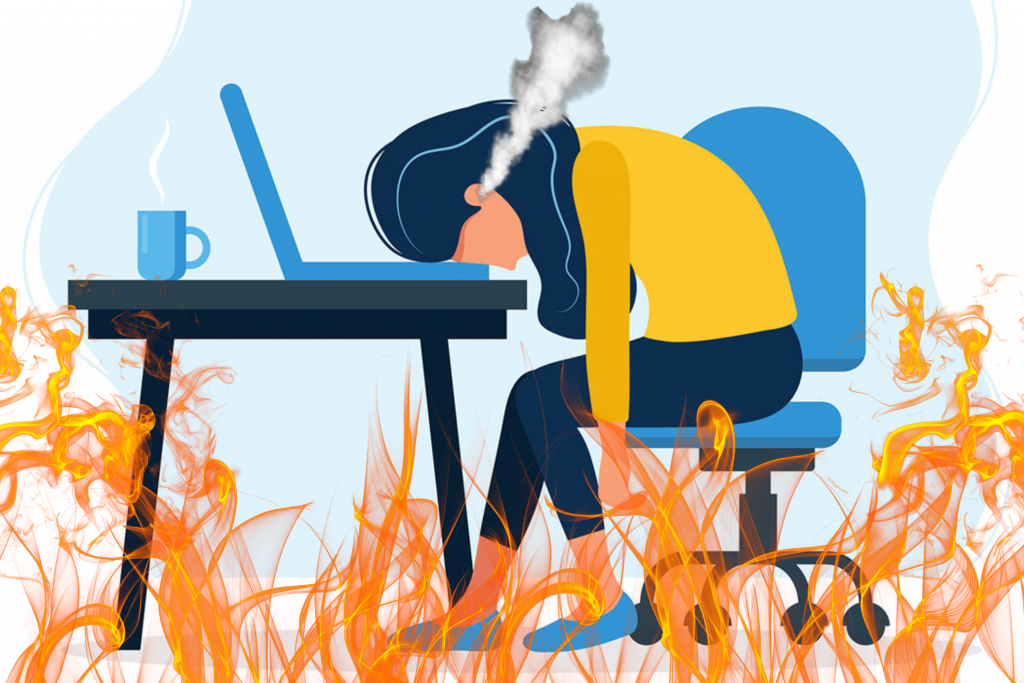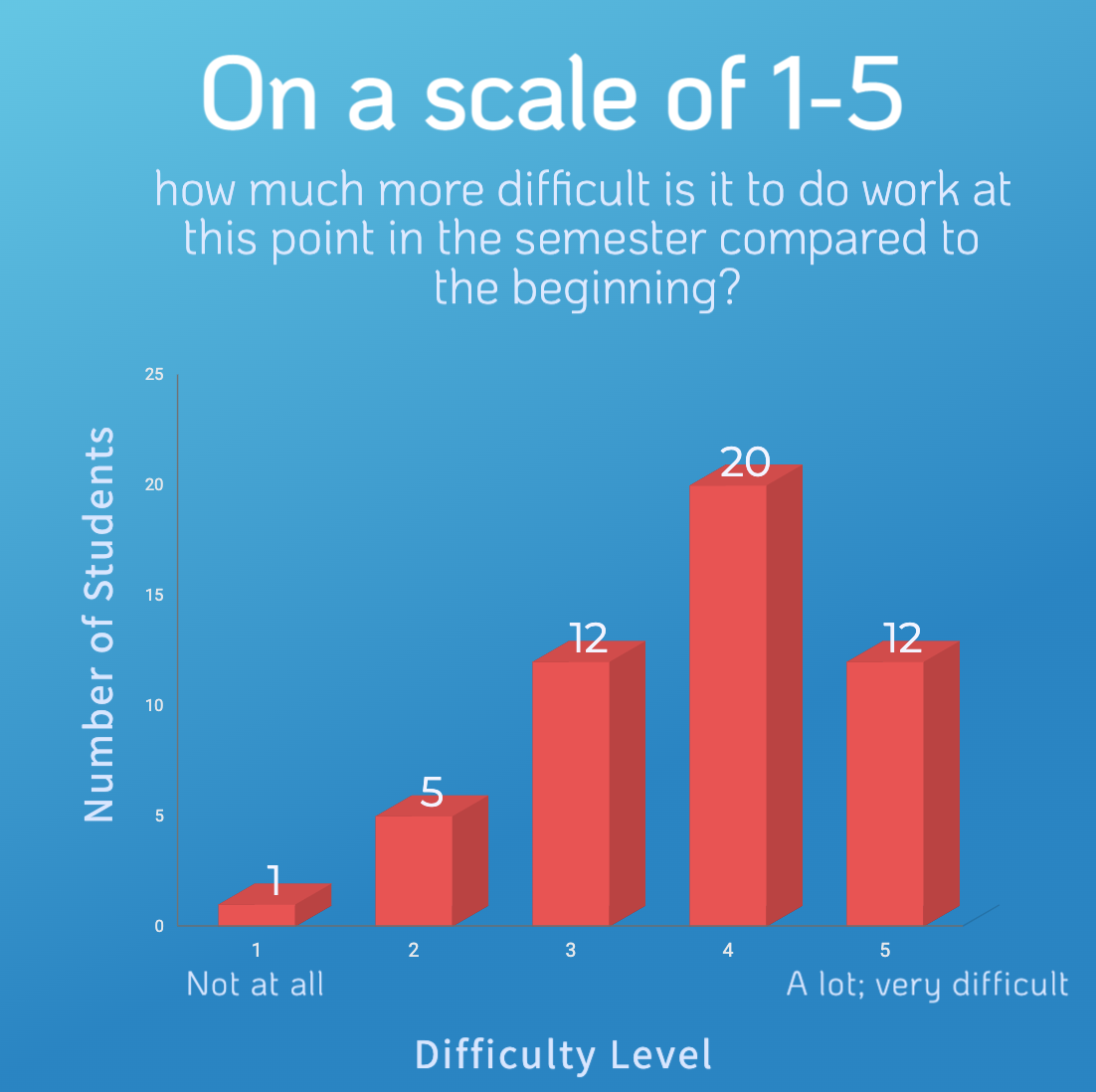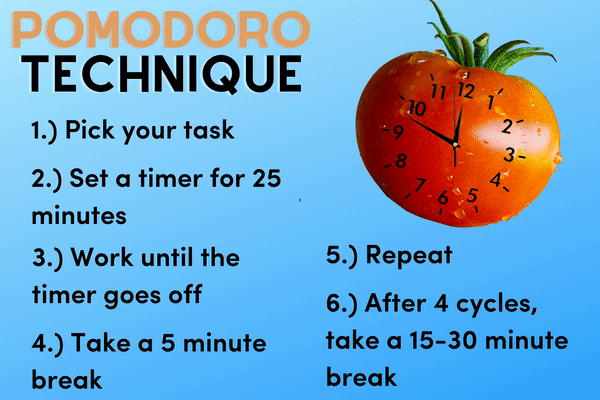Combating mid-semester burnout
Combating mid-semester burnout

As the semester approaches the halfway point, students may find themselves suffering from burnout. The Syracuse community is simultaneously returning to in-person classes and healing from the pandemic, and this combination can amplify feelings of burnout and hinder learning.
“In-person tests have made it harder,” Emmanuel Adeniyi, a Syracuse junior, said. “I’ve had to get back to being in class and taking tests.”
Academic burnout is the exhaustion and lack of motivation that comes from extended studying and school work. It can cause negative changes in mental health, the inability to complete work and even physical health issues such as headaches, body aches, physical exhaustion, frequent illness and change in appetite.
Fifty Syracuse University students took a survey about burnout, giving their tips for lessening its effects. They also gave suggestions for professors on how they can reduce burnout and keep their students engaged.

Despite the physical and mental effects of academic burnout, students must continue to attend class and complete assignments. Students experiencing burnout have turned to a variety of strategies in order to get through the semester.
The top five recurring tips were —
- Prioritize sleep, even if it means getting behind on work
- Take breaks
- Take things one day, or one task, at a time
- Stay active or work out
- Make time for friends and fun activities
Illustration by Sierra Sulc
“I use the Pomodoro technique,” sophomore Will Johnson said. “It’s a strategy of doing work for 25 minutes and then a five-minute rest when I’ll usually listen to music.”

Students are ultimately responsible for their own academic success, but some professors’ practices can increase burnout.
“My professors will mention sometimes that it’s the middle of the semester, and they recognize that we’re all tired and need a break,” senior Sam Oates said. “They’ll acknowledge it, but they won’t adjust their course accordingly.”
Surveyed students provided suggestions for professors to help keep students engaged and minimize burn-out.
The top five recurring suggestions for professors were —
- Be flexible and accommodating with extensions
- Reduce coursework amount or difficulty
- Listen to students and be empathetic about student stress
- Reduce the amount of reading assigned
- Give more, smaller assignments, rather than a few large ones
As the weather gets colder and the coursework picks up, it can seem impossible to do your work: make sure to give yourself grace. Take time to do things you enjoy and do things that are good for you. Do your best to stay organized and manage your time, but when you fall short, know that the world won’t come down around you.





